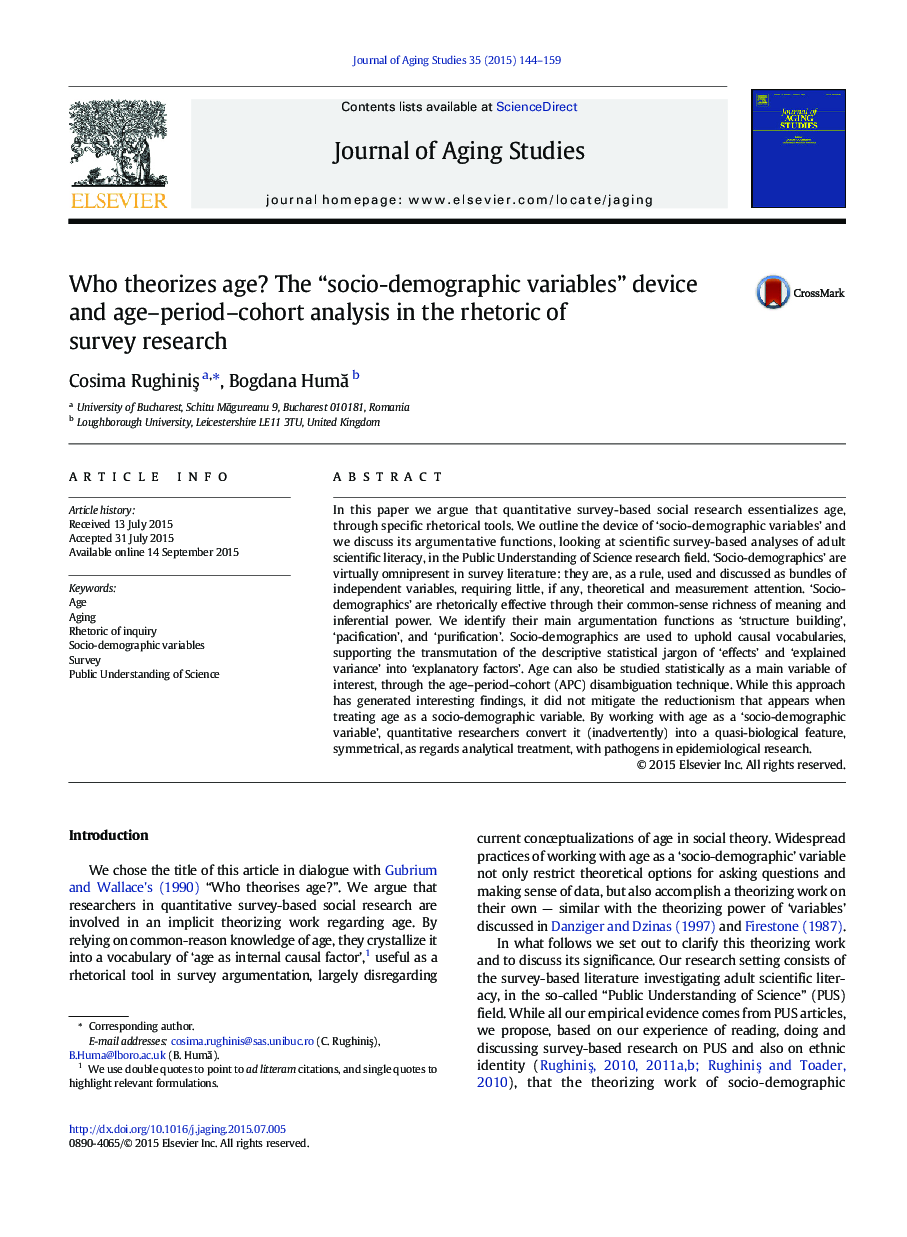| Article ID | Journal | Published Year | Pages | File Type |
|---|---|---|---|---|
| 7517601 | Journal of Aging Studies | 2015 | 16 Pages |
Abstract
In this paper we argue that quantitative survey-based social research essentializes age, through specific rhetorical tools. We outline the device of 'socio-demographic variables' and we discuss its argumentative functions, looking at scientific survey-based analyses of adult scientific literacy, in the Public Understanding of Science research field. 'Socio-demographics' are virtually omnipresent in survey literature: they are, as a rule, used and discussed as bundles of independent variables, requiring little, if any, theoretical and measurement attention. 'Socio-demographics' are rhetorically effective through their common-sense richness of meaning and inferential power. We identify their main argumentation functions as 'structure building', 'pacification', and 'purification'. Socio-demographics are used to uphold causal vocabularies, supporting the transmutation of the descriptive statistical jargon of 'effects' and 'explained variance' into 'explanatory factors'. Age can also be studied statistically as a main variable of interest, through the age-period-cohort (APC) disambiguation technique. While this approach has generated interesting findings, it did not mitigate the reductionism that appears when treating age as a socio-demographic variable. By working with age as a 'socio-demographic variable', quantitative researchers convert it (inadvertently) into a quasi-biological feature, symmetrical, as regards analytical treatment, with pathogens in epidemiological research.
Related Topics
Health Sciences
Medicine and Dentistry
Geriatrics and Gerontology
Authors
Cosima RughiniÈ, Bogdana HumÄ,
